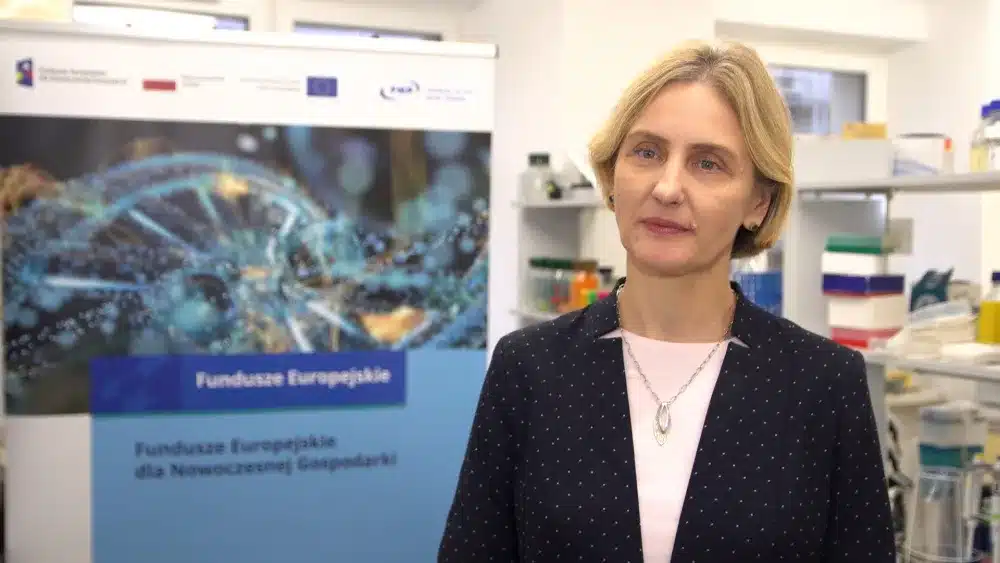The project RACE-PRIME at the International Institute of Molecular and Cell Biology aims to develop innovations in biomedical science through two platforms focused on RNA research and cell biology. The project is funded by the European Funds for a Modern Economy 2021-2027 under the International Research Agendas action carried out by the Foundation for Polish Science. Research aims to develop new therapies for diseases that are currently inadequately treated, including infectious, viral, bacterial diseases and rare disorders.
“RNA has been known as a molecule for many decades. We learned about its function and importance in cell biology – it acts as a mediator between the genetic information contained in DNA and proteins that make up all living organisms. However, it took us decades to understand how to use RNA, which we have in our cells, for therapeutic purposes,” said Professor Gracjan Michlewski, head of the RNA-Protein Interactions Laboratory at the Dioscuri Centre at the International Institute of Molecular and Cell Biology (IIMCB) in Warsaw, in an interview for the Newseria Innovations agency.
“In the RACE-PRIME project, we have two platforms focused on RNA research and cell biology, which will serve to create innovations for biomedicine. The results we are hoping for include proposals for new therapeutic approaches. We are working on obtaining chemical molecules that may become drugs, and on discovering markers or molecules that can be used to diagnose diseases,” explains Professor Marta Miączyńska, Director of the IIMCB in Warsaw.
The RACE-PRIME project has received more than 36 million PLN from the European Funds for a Modern Economy 2021–2027 (FENG). The funds were awarded by the Foundation for Polish Science as part of the International Research Agendas action.
One research direction carried out as part of RACE-PRIME, coordinated by Prof. Marta Miączyńska, includes work on advanced models of rare diseases, which may eventually allow for the development of personalized therapies. Another direction, coordinated by Prof. Gracjan Michlewski, is looking for both antiviral and antibacterial therapies with a broad spectrum of action. The therapeutic goals are aimed at viral RNA, pathogen proteins, and host proteins that assist in viral replication. The scientists aim to discover molecules that will cause a broad spectrum of inhibition of viral replication.
“Viruses multiply very quickly in cells. We need to find factors that will inhibit this process. One of them is the viral RNA itself. Our project is aimed at finding such molecules that will bind with the viral RNA and inhibit multiplication,” explains Prof. Gracjan Michlewski. “But on the other hand, there are viral proteins and our own ones that help to multiply the virus. And we’re also trying to exploit that. We will target these proteins to halt the multiplication of various types of viruses.”
Both research areas are supported by the laboratories and service laboratories of the IIMCB, as well as international strategic partners.
“In the RACE-PRIME project, we have two international partners. One is the Department of Human Genetics at the University of Edinburgh. The scientists from this department are excellent in the so-called translation of basic research, that is, the application of the results of basic research in the clinic. Our second partner, the Flemish Institute for Biotechnology in Belgium, is a European champion in the commercialization of research results. We will therefore learn from our partners how to translate research results into innovations for patients and how to effectively commercialize them,” explains Prof. Marta Miączyńska.
